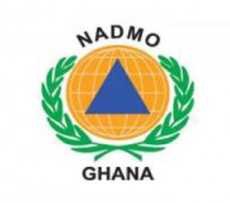Regional News of Thursday, 14 May 2015
Source: GNA
Let’s not be complacent over Ebola and Cholera campaign – NADMO

The National Disaster Management Organisation (NADMO) has cautioned Ghanaians against complacency in the campaign against the Ebola Viral Disease and Cholera in the country.
Ms. Ruth Arthur, the Head of the Disease Epidemic Department of NADMO, who gave the caution, said although Cholera cases had reduced in the country while Ebola was almost abating from the affected countries in the sub region, it did not mean the country should be complacent.
“We simply cannot be complacent, the surveillance and preventive measures must continue” she stated in an interview with the Ghana News Agency (GNA) on the sidelines of a stakeholder’s sensitization workshop at Abura Dunkwa, in the Abura-Asebu-Kwamankese (AAK) District.
Statistics available on the World Health Organisation website indicates that as of May 12, this year, a total of 26,724 confirmed Ebola cases had been recorded in Guinea, Liberia and Sierra Leonne, with 11,065 deaths.
In Ghana 140 suspected cases have tested negative at the Noguchi Memorial Institute since March last year.
As of Januray 16, this year, a total of 29,248 cholera cases, including 243 deaths were reported from 130, out of 216 districts, in all 10 regions of the country.
The workshop forms part of NADMO’s on-going national efforts to increase and sustain high level awareness on the threat of Ebola and Cholera and to solicit community support for preparedness interventions on the two diseases.
Being undertaken in collaboration with the Ministry of Health/Ghana Health Service and MMDAs in the respective regions, three districts in the region have so far benefited from the workshop and community durbars while the others would benefit in subsequent weeks.
The AAK workshop was attended by about 60 participants made up of Traditional Birth Attendants and Healers, Market Queens and representatives from Council of Local Churches, various drivers’ Unions, and the Ghana Education Service.
Participants were taken through topics such as “Ebola and Cholera Preparedness and role of community leaders”, “Consensus on way forward to support surveillance and reporting” and demonstration of proper hand washing with soap and running water.
Ms. Arthur expressed worry that with the level of development, Ghana was still struggling with a disease like cholera and called for attitudinal change in relation to sanitation.
She stressed the need for Metropolitan, Municipal and District Assemblies (MMDAs) to enforce its sanitation bye-laws in order to compel landlords to build toilet facilities in their homes, the lack of which created over dependency on public toilets, open defecation and its associated diseases.
She called on Community and Traditional leaders to support the various MMDAs, NADMO and the Ghana Health Service to intensify education and surveillance on the two diseases instead of leaving the campaign on the Government alone.










